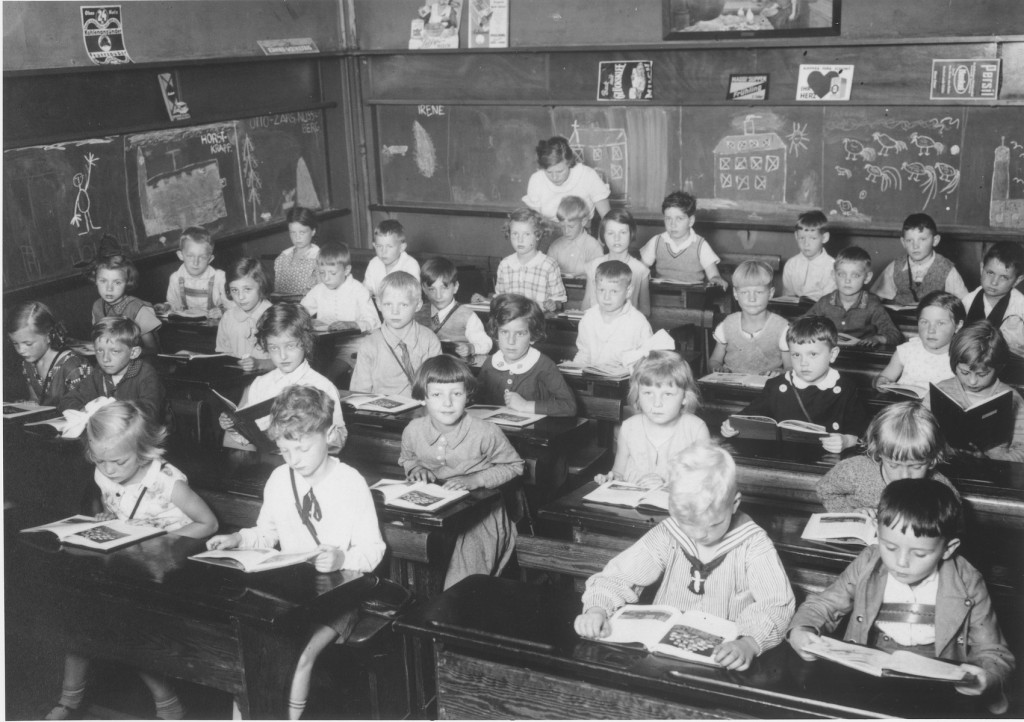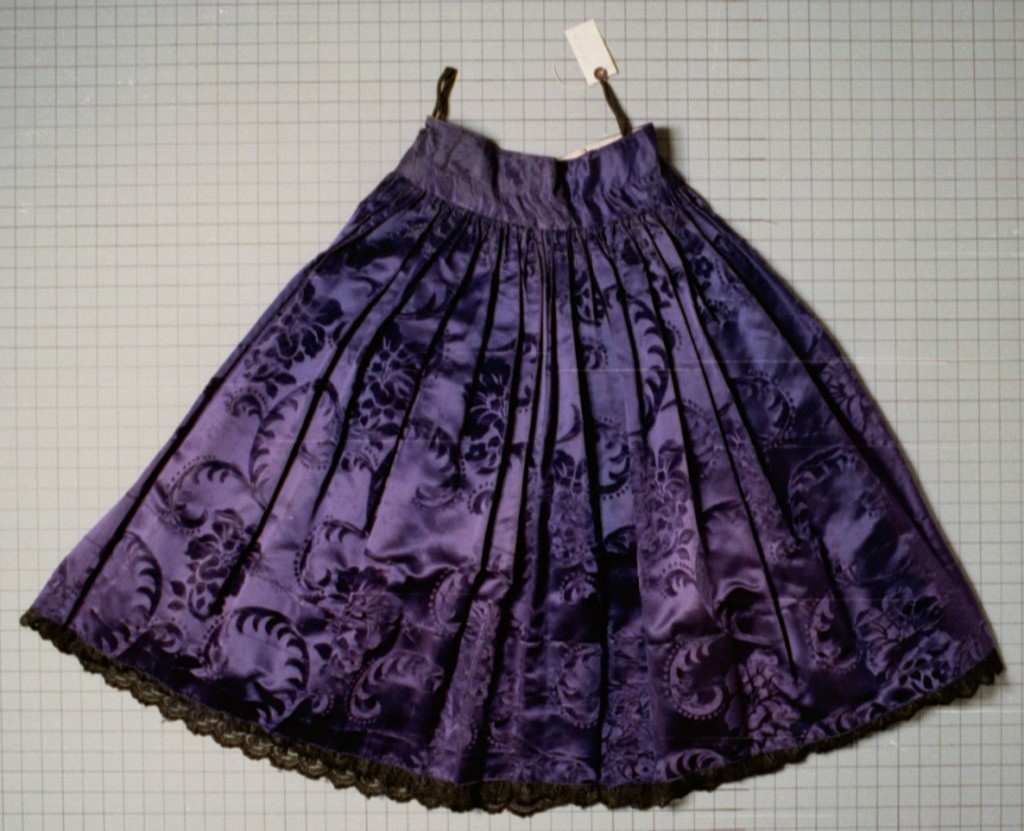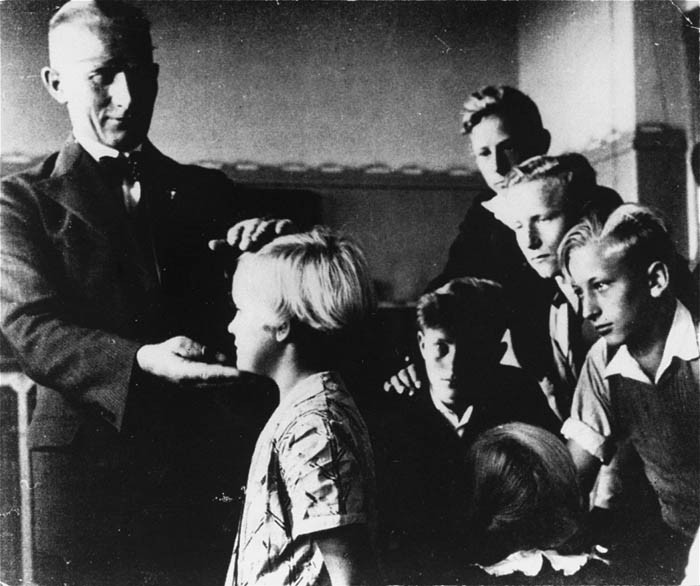
The Role of Academics and Teachers
Persecution of Jews and other groups was not solely the result of measures originating with Hitler and other Nazi zealots. Nazi leaders required the active help or cooperation of professionals working in diverse fields who in many instances were not convinced Nazis. Teachers and university professors were actively involved or went along with the ouster of Jews from their fields and cooperated in other ways with the Nazi regime in the implementation of racial policies.
Academics
Just as in other fields, a variety of professionals in the academic world—from university presidents to deans to professors—actively carried out or complied with the dismissal of Jewish colleagues.
Scholarly experts, especially in the fields of physical anthropology, psychiatry, and genetics—enthusiastic supporters of eugenics before the Nazis took power—became public mouthpieces for Nazi racial policies. Some carried out research to determine who was “Jewish” or not in the case of contested “racial” origins. Nearly all better-known geneticists, psychiatrists, and anthropologists sat on special hereditary health courts that lent an aura of due process to the forced sterilization program, while others submitted expert opinions. Scientific experts taught courses for SS doctors.

Academics in the field of criminal psychology working under the aegis of the police carried out studies of Germany’s Roma and Sinti population. Their research, reflecting the belief that this population was antisocial and genetically predisposed to criminal behavior, was used during the war by the SS to round up Roma for deportation to Auschwitz-Birkenau.
Teachers
Public school teachers were obliged to join the Nazi Teachers Union and, like other civil servants, take an oath of loyalty to Hitler as Führer. Educators presented content on differences between “races” and other new subjects mandated by the Nazi Minister of Education. In this way they helped legitimize Nazi beliefs that Jews belonged to a “foreign race” that posed a biological threat to the strength and health of the German people. Yet inside and outside the classroom, there was the opportunity for individual discretion.

"School, my beloved school." —Gisela Glaser describes her classmates and teachers cheering as she and her family are deported to a concentration camp.
Critical Thinking Questions
Explore the pressures teachers felt under the Nazi regime, the range of decisions individuals made in the face of those pressures, and the relevance of this history now.
Consider the roles of these professionals. How might their traditional responsibilities be tested in times of social upheaval?
How can knowledge of the events in Germany and Europe before the Nazis came to power help citizens today respond to threats of genocide and mass atrocity?
How have professional codes of conduct changed after the Holocaust?

